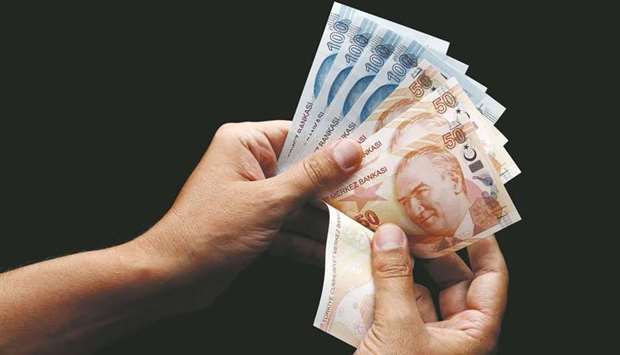Turkey’s central bank hiked rates by 200 basis points to 19% yesterday, twice the market expectation in what it called a “front loaded” move to head off rising inflation and a sliding lira, which rallied nearly 2% in response.
The decision had been seen as a test of new central bank governor Naci Agbal’s battle against double-digit inflation and his hawkish recent rhetoric.
Analysts said he more than passed the test, clearing the way to higher rates for longer than expected as the major emerging market (EM) economy rebounds from the coronavirus pandemic.
“Abgal is clearly keen to embellish his inflation-fighting credentials and thus was willing to go above and beyond what investors had demanded,” said Jason Tuvey, senior EM economist at Capital Economics.
Almost all of the 21 economists polled by Reuters expected a 100-point rate hike.
The lira responded with a jump to 7.353 against the dollar, its strongest level in two weeks.
Turkey’s one-week repo policy rate is the highest of any big economy and it is back to levels last touched in mid-2019.
It had stood at 17% since December after aggressive monetary tightening last year.
Market expectations for a hike shot up after US bond yields jumped and the lira lost as much as 10% since mid-February.
Inflation also rose more than expected to nearly 16% last month, well above a 5% target.
Currency depreciation raises inflation in import-dependent Turkey.
The bank “decided to implement a front-loaded and strong additional monetary tightening,” its policy committee said.
It repeated that a tight stance would be held “decisively” for an extended period and promised more rate hikes if needed.
The central bank has now tightened policy by 875 basis points since Agbal was appointed in November, when the lira touched a record low.
The currency rallied 20% after the appointment as foreign funds trickled back in to Turkish assets.
In appointing Agbal as part of a leadership overhaul, President Recep Tayyip Erdogan pledged a new market-friendly economic era.
“Exceeding (market) expectations was definitely the most efficient way to encourage foreign investors to restore their bullish bets on the lira,” said Piotr Matys, senior emerging markets forex strategist at Rabobank.
Turkey’s sovereign dollar bonds jumped after the rate hike.
The recent global bond market rout hit Turkey harder than most EMs due to policy concerns and narrowing real rates, which have stoked dollarisation.
Local hard currency holdings hit a record $236bn last month and edged up last week.
Rate cuts are expected in the second half of the year when inflation should dip after recent rises due to energy prices, the lira slide and higher overall demand as coronavirus lockdowns are eased. Inflation remains within the bank’s forecast range and Agbal says it will hit the 5% target by end-2023.

Turkish lira banknotes are seen in this picture illustration in Istanbul (file). Turkey’s central bank hiked rates by 200 basis points to 19% on Thursday, twice the market expectation in what it called a u201cfront loadedu201d move to head off rising inflation and a sliding lira, which rallied nearly 2% in response.
